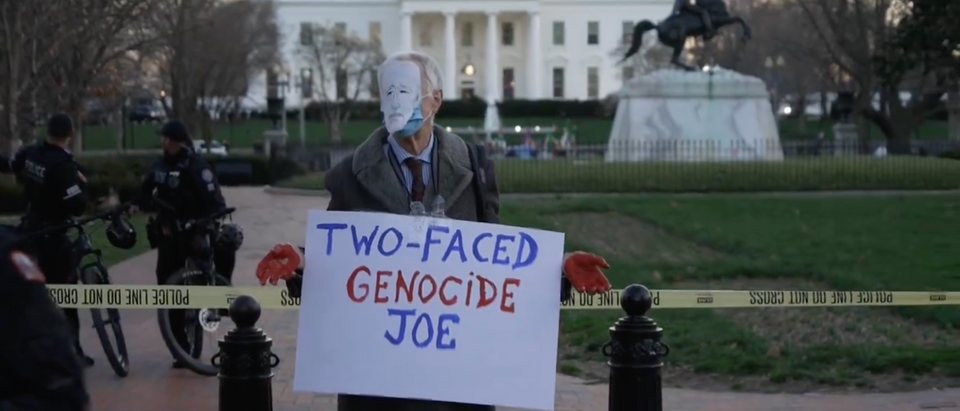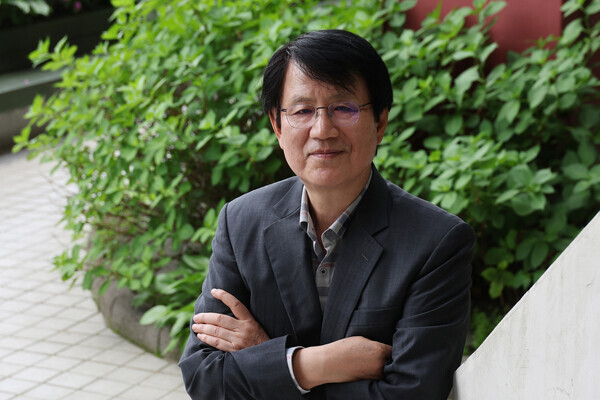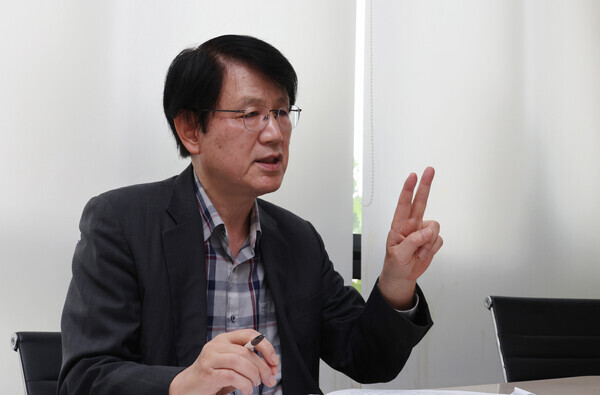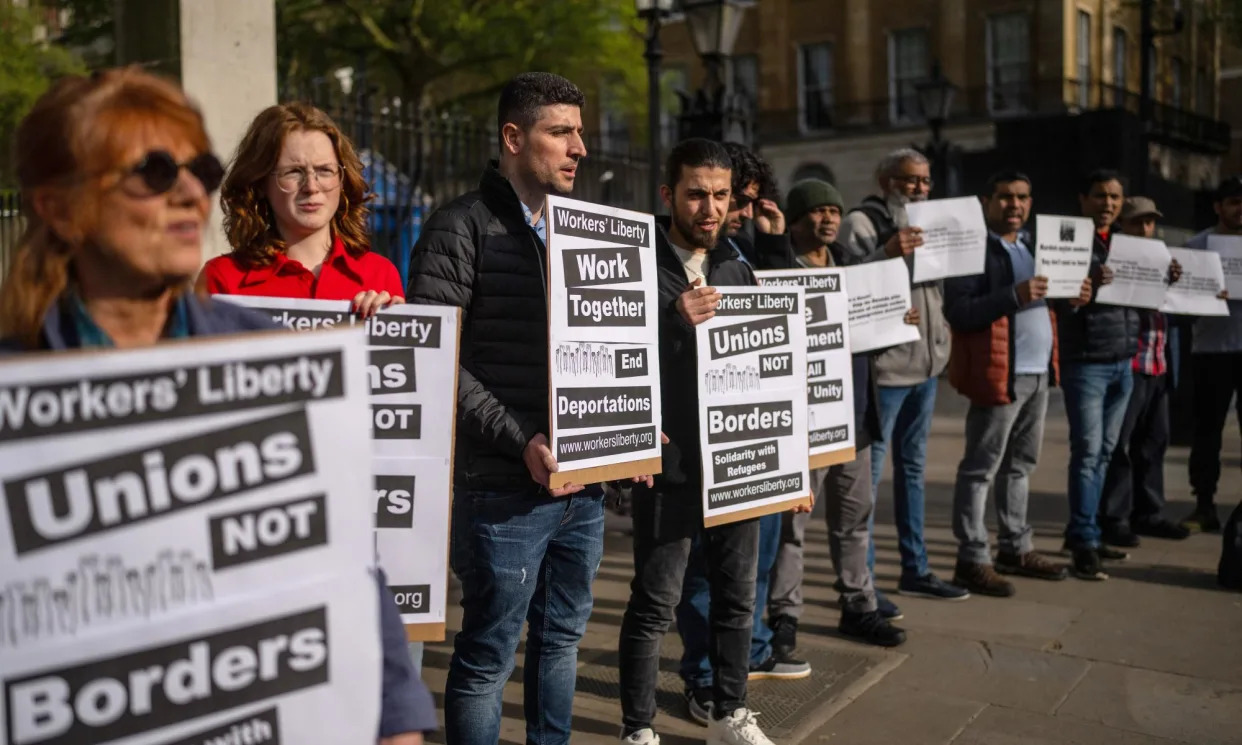Co-chair of Momentum Hilary Schan has resigned from the Labour Party and her role at the left-wing campaign group, claiming the party’s leadership “cannot deliver the change that is so desperately needed” despite its local election success.
Schan, a councillor in Worthing, issued a joint resignation statement with deputy Worthing council leader Carl Walker and Worthing councillor Margaret Howard.
They said quitting the party was “not a decision any of us has taken lightly” but expressed concern at Labour’s policy to retain the two child benefit cap and a supposed lack of a commitment to saving public services.
Speaking to LabourList, Schan said that Labour’s policy platform under Keir Starmer is “utterly inadequate when you look at the multitude of crises the country is facing” and described the party’s response to the Israel-Gaza conflict as “horrendous”.
She said: “I think that, for most of us on the left, that just felt like the final straw.”
‘I haven’t changed, the party has’
Schan, who joined the Labour Party in 2016 under Jeremy Corbyn, said that the last four years had been “incredibly difficult”.
“It’s felt like it’s been a kind of gradual journey since Starmer came in as leader, but I was a very committed Labour activist, working to elect the first Labour council in Worthing,” she said.
“But I think particularly over the past six months, the kind of combination of the response to Gaza, along with the kind of domestic policy rollbacks and the stifling of the party… has led to this point.
“I like to think of it that I haven’t changed, the party has.”
She said she shares the same sentiment as journalist Owen Jones, who also recently quit the Labour Party, and said: “We’ve really got to stress the need for an alternative and the benefits of having those left voices hopefully in Parliament, whether those are independent MPs or Green MPs or socialist Labour MPs.
“Hopefully, if we can elect some of those MPs, they will have a voice within Parliament and we will be able to pressure that incoming Labour government.”
Schan has joined the committee of the We Deserve Better campaign and said she is “excited” to be working to build an “alternative to the race to the bottom between Labour and the Tories.
Owen Jones said that Keir Starmer is “driving away committed elected representatives and campaigners” like Schan.
He said: “These local election results betray a lack of enthusiasm for Labour in its urban heartlands, and show that many are crying out for an alternative.
“Hilary’s experience will be an asset to the campaign and help to build the movement for an alternative based on the politics of hope.”
Speaking to LabourList in March, Luke Akehurst, a Starmer-backing member of Labour’s national executive committee, said: “There is something rather pathetic about backing a random collection of Green and independent candidates who are seeking to undermine Labour just at the point where we’re headed towards an historic general election victory.”
His report for members on the latest NEC meeting suggested party general secretary told the governing body Labour would take a tough line on any Labour MP accepting from “We Deserve Better”, as this was also funding Green and independent candidates.
‘What is it about me that Starmer finds so scary?’
Schan said it was “particularly emotional” to stand down as co-chair of Momentum and described the group’s work as “absolutely vital” in maintaining a left presence in the Labour Party.
While she said she finds it hard to imagine returning to the party, she said if Labour were to “go back to being a party that I felt represented the needs of working people and shifting their policy to reflect that again… that is certainly something I would consider coming back to.”
When asked what she would say to Keir Starmer as she quits the party, Schan said: “I think there’s this kind of boogeyman sort of view of the left, when in reality the large majority of people like us have absolutely slogged our guts out for the Labour Party over the last eight years, even under a change of leader.
“What is it about me that he finds so scary? That’s what I’ve always wanted to know.”
‘It doesn’t look like a Labour Party to me’
Deputy leader of Worthing Borough Council Carl Walker highlighted a recent poll that suggested 61% of voters think they will be either the same or worse off under a Labour government as cause for concern.
Speaking to LabourList, he said: “I don’t think any Labour Party could be as bad as this Conservative government, but I do think if you look at the polls there is not a great thirst for Labour policy.
“This is not 1997, where people felt they had a charismatic Labour leader with a bold vision. Instead, it’s very much an anti-Conservative vote, and with good reason after the shitshow of the last five years.
“In all honesty, it just doesn’t look like a Labour Party to me. It doesn’t look like a progressive party in terms of the social and economic policies.
“All the people that we’ve worked so hard to support over the last few years to support the most vulnerable in terms of housing, food insecurity – I don’t see that their circumstances will change an awful lot.”
Walker said he had taken the decision to quit the Labour Party with a “heavy heart”, especially as he was proud of the progressive direction of the local party in Worthing.
“I love our local Labour Party. I think we’re doing really good work. We are an unusual group of people in that we have a broad church, where we have people from the left, the centre, people who aren’t remotely factional, and we’ve all pulled together to focus on the common goals that we’ve got.
“That’s why I wanted to wait until after the local elections because I wanted to continue to support them until the very end. But for me personally, I can’t continue to support the Labour Party.
“They’re a really good bunch and I think they’ll do great stuff locally, so it is with a heavy heart, and they have my full support.”
‘Wholesale contempt’ for members
Walker attempted to stand to become Labour’s candidate for East Worthing and Shoreham last autumn, but was not included on the shortlist. He said he expected to be blocked from standing due to the “culture under the Labour Party”.
He said: “The reason they gave me was because I was criticising the Labour leadership when I gave a speech at the CWU picket line saying they should allow frontbenchers to support picketers.
“It was a shame but not a surprise, and it did not really play into my decision making for me.”
Walker claims there is “wholesale contempt” for members, particularly around the selection of candidates, and said that they have been “taken for granted” by the current leadership.
He said there is a “huge disconnect” between the membership’s stance on progressive policies and their view of the Israel-Gaza conflict and the leadership’s current position. He also claimed that “many activists and members” had quit the party in Worthing in recent years over the selection in East Worthing and Shoreham and the direction of the party.
While he said he would support Beccy Cooper’s campaign to become the Labour MP for Worthing West, he said he could not support Tom Rutland’s bid to be the MP for East Worthing and Shoreham.
He said he was not convinced Rutland’s politics were sufficiently “in line” with most residents’ politics. “I will support Beccy Cooper because I know that hers are,” he said.
“For me, it’s about looking at individual candidates, do those people represent the needs of their residents and are they willing to push for the things that people need. If they’re in the Labour Party, great. If they are in the Green Party, great. If they are independent, great.
“It’s about what they stand for, because the Labour Party as a whole national entity I don’t think anymore represents the needs of the vast majority of people.”
Walker contested the East Worthing and Shoreham constituency for the National Health Action Party in 2015 and 2017. He said the possibility of standing again for Parliament was “not something I am thinking about at the moment”.
“I think the one thing that binds so many of us in the Labour movement is, however we may agree or disagree on certain things, we agree on the fact that we want Tory politicians out, so that’s not something for me to be thinking about right now,” he said.
Decision to quit was made ‘some time ago’
LabourList understands that Walker was facing the prospect of being suspended from the Labour Party following accusations that he was supporting rival candidates to Labour on social media.
A cache of screenshots shared with LabourList showed Walker retweeting posts from the independent mayoral candidate Jamie Driscoll, as well as posts from the We Deserve Better campaign.
However, he refuted the suggestion that he was quitting the party before he would be expelled and said that he had already made the decision to quit the party “quite some time ago”.
He said: “I think what happened was, the party obviously saw what I’ve been retweeting and reposting and I think their attempt to put me through this disciplinary for retweeting Jamie Driscoll and then leaking it to the press is an attempt to make it look that way.
“To be honest, I honestly don’t give a shit. It doesn’t matter whether people say that or not. It is an absolute irrelevance – to me, it’s always been about finding the best way to do things for the residents that need us most.”
‘Sad state of affairs’
A spokesman for Momentum said: “As Hilary leaves Momentum, we’d like to place on record our thanks for her leadership and dedicated service to our movement.
“It is a sad state of affairs for Keir Starmer’s Labour Party when committed activists like Hilary, who work so hard to deliver progressive change for their communities, no longer feel it is the place for them.
“Momentum remains focused on organising for a democratic Labour Party which views its members and core voters as an asset, not an inconvenience.
“We will keep campaigning for real Labour policies which deliver the country the transformative change it is crying out for, instead of constant u-turns and corporate-friendly policies.”
LabourList understands Schan has automatically resigned her membership and roles within Momentum and that the organisation’s executive will consider and agree a process for replacing her as co-chair.
‘People who are leaving are right people to leave’
A report last year found that Labour Party membership had fallen by almost 170,000 since 2018 amid a reported exodus of Jeremy Corbyn supporters.
Former adviser to Tony Blair John McTernan told LabourList at the time that “the people who are leaving are the right people to leave”.
He said: “The Labour Party under Jeremy Corbyn became large, but it filled up with people who are not from the Labour family and not from the Labour Party tradition and are better off back in the fringe far-left organisations that they were members of.”
McTernan added that membership is “not a numbers game” and there is “quality as well as quantity”.
“The proof of the strength of the current membership is the week-in-week-out performance in council by-elections and what we’ve seen in council elections.”
The Labour Party has been approached for comment.







